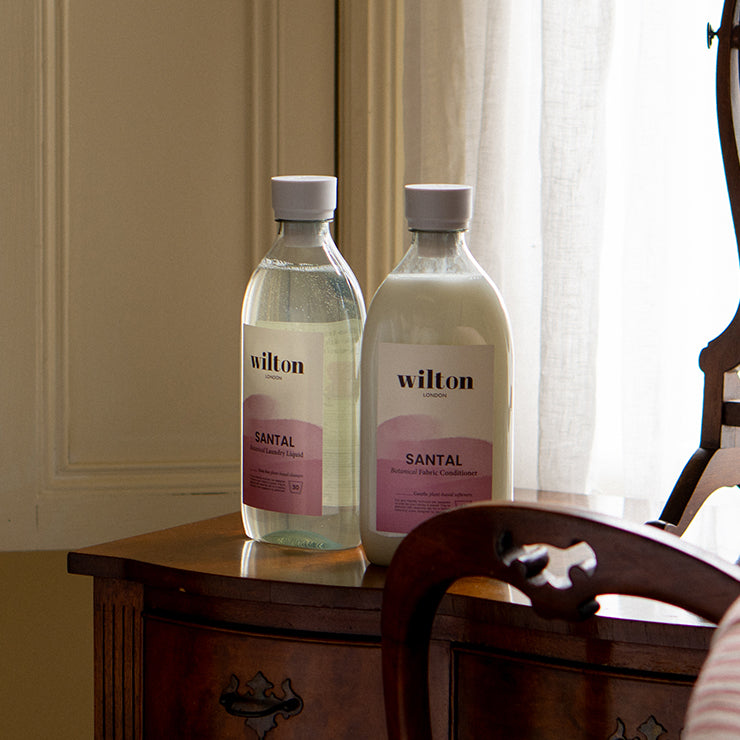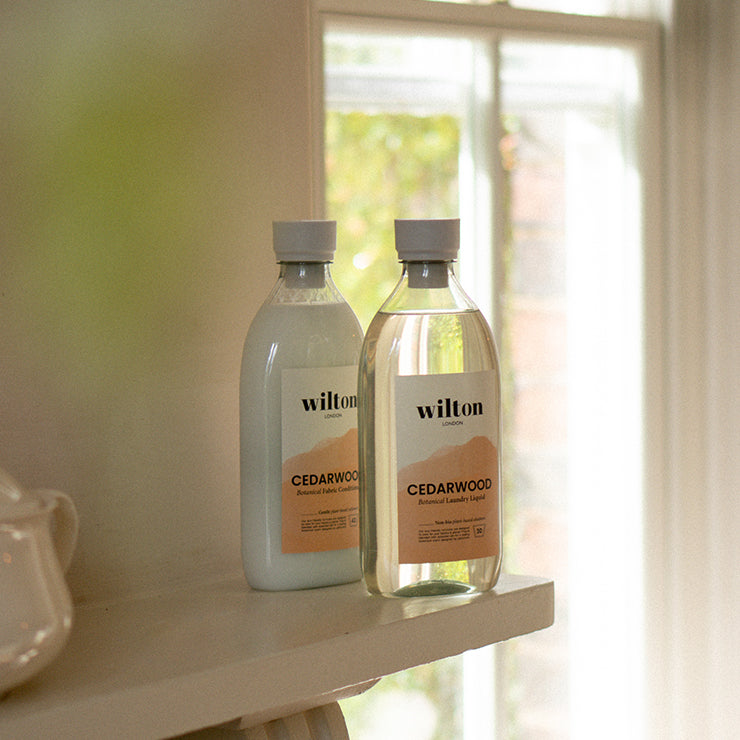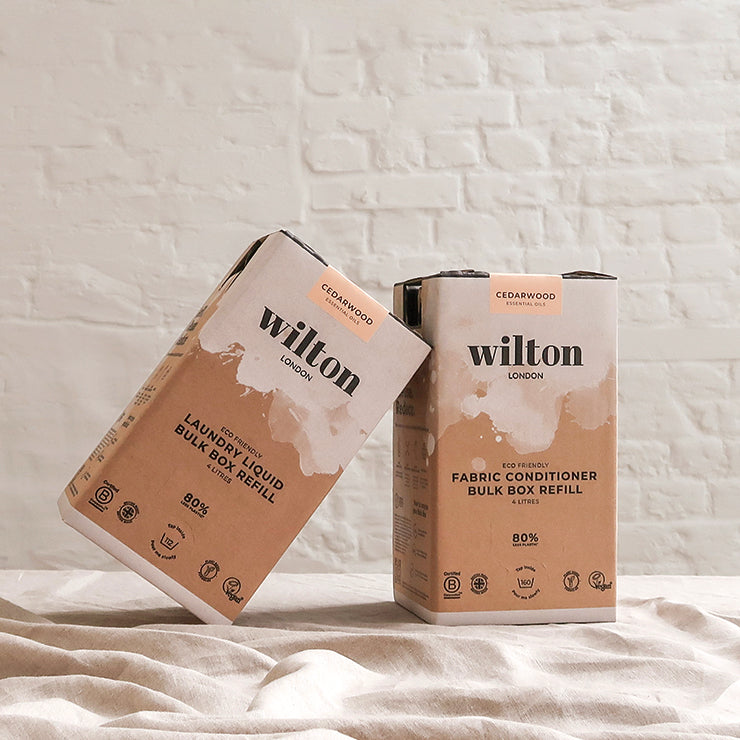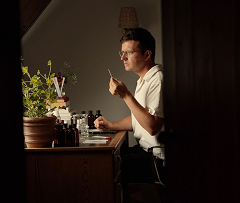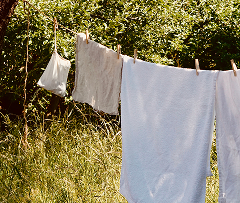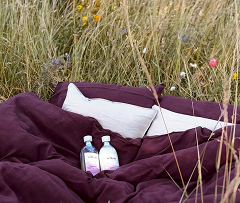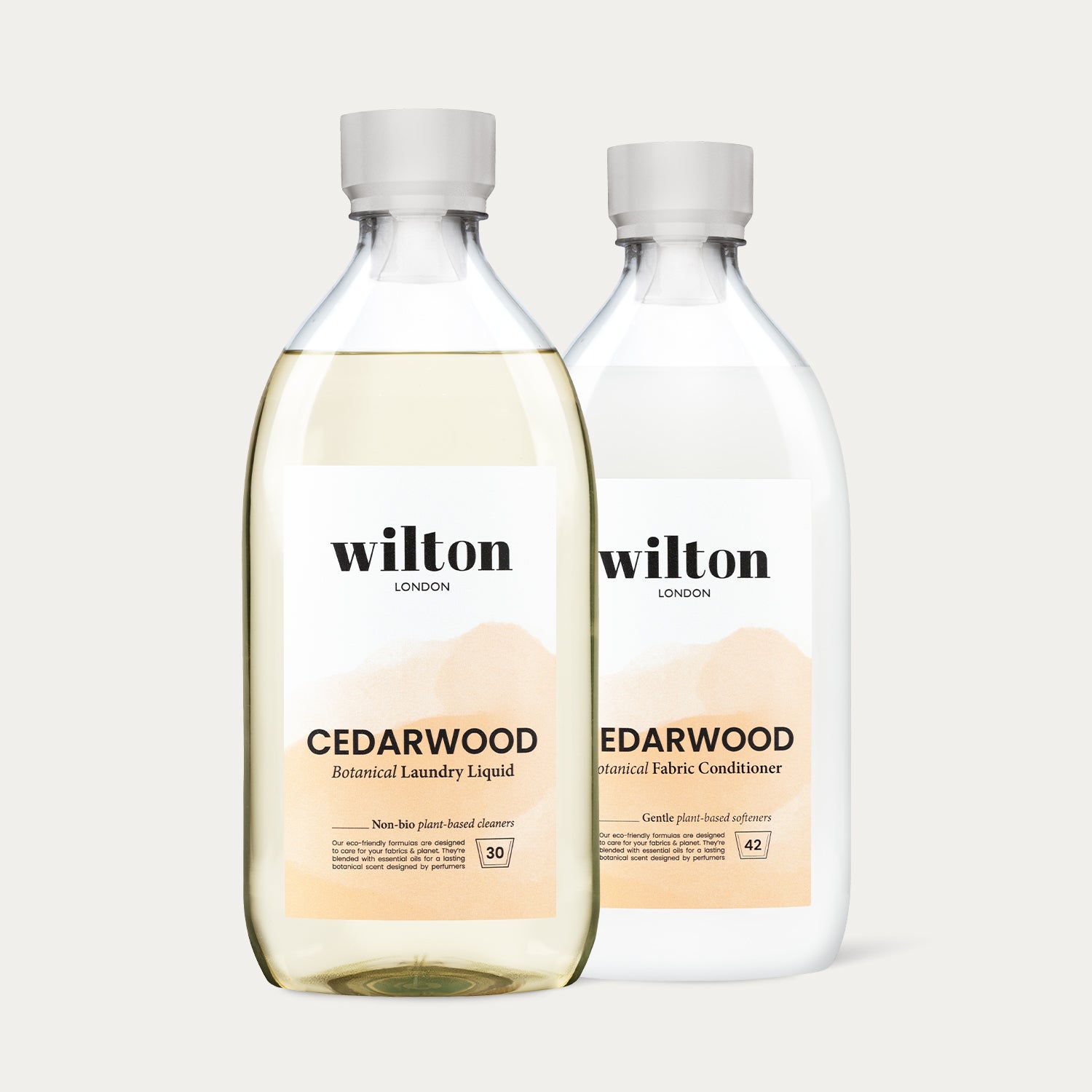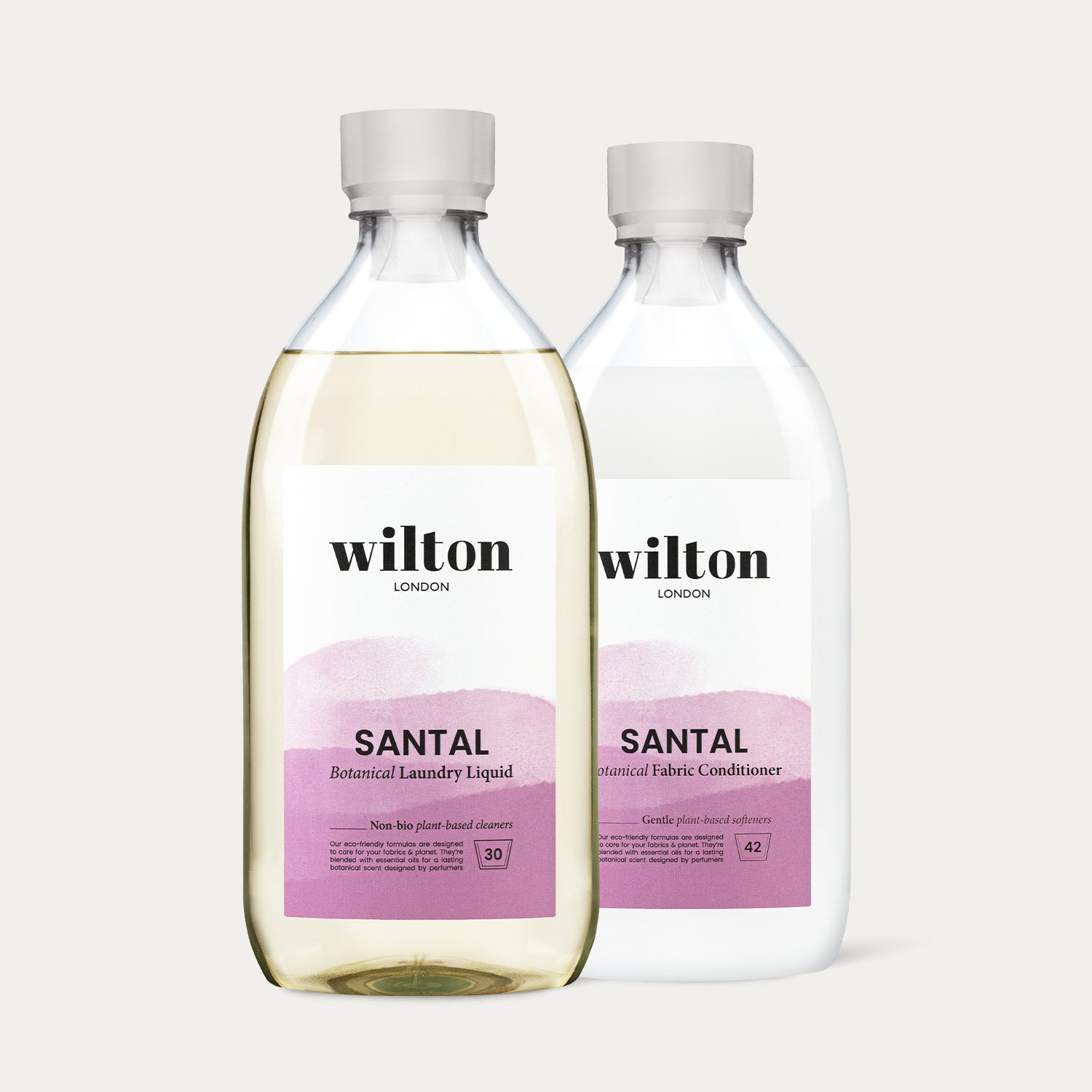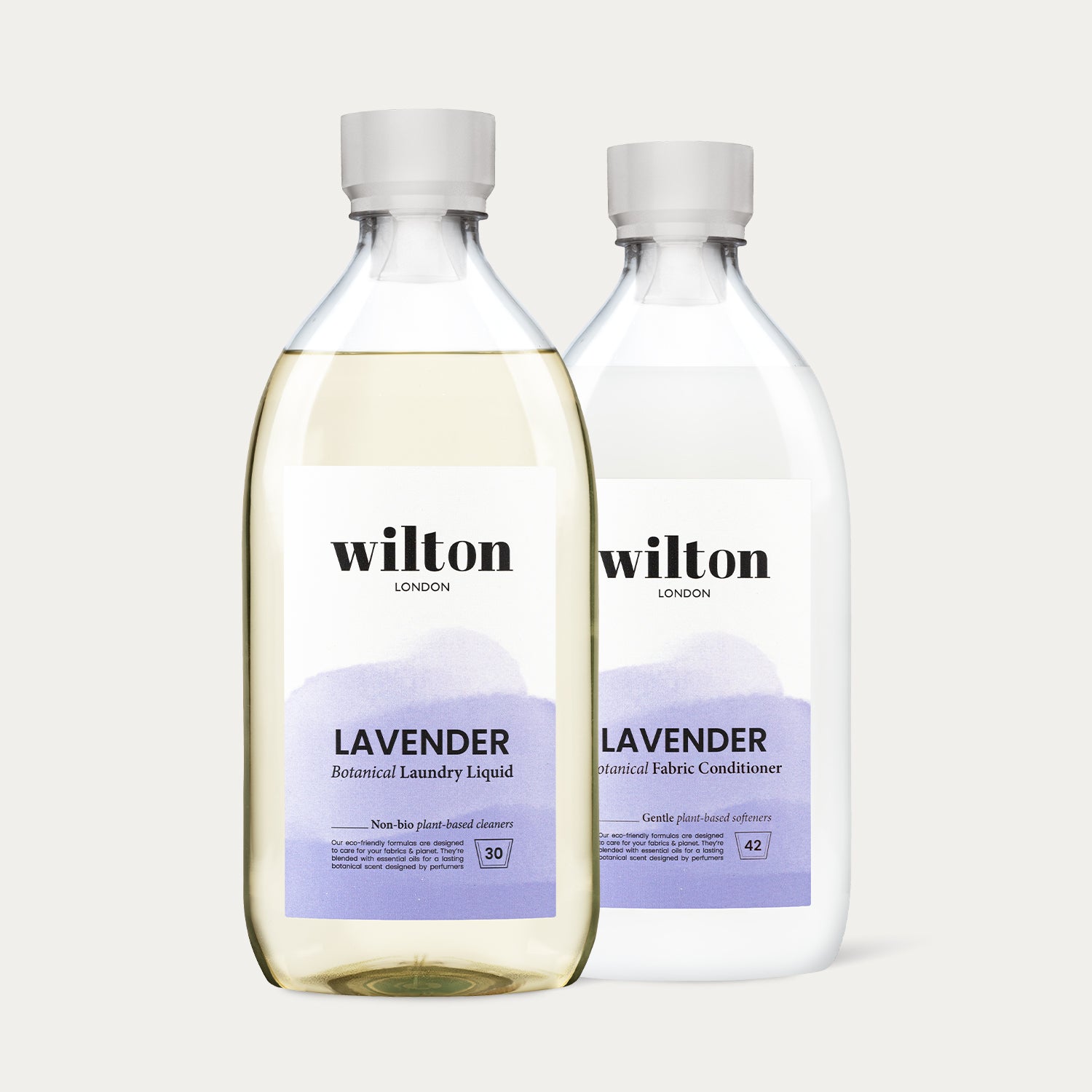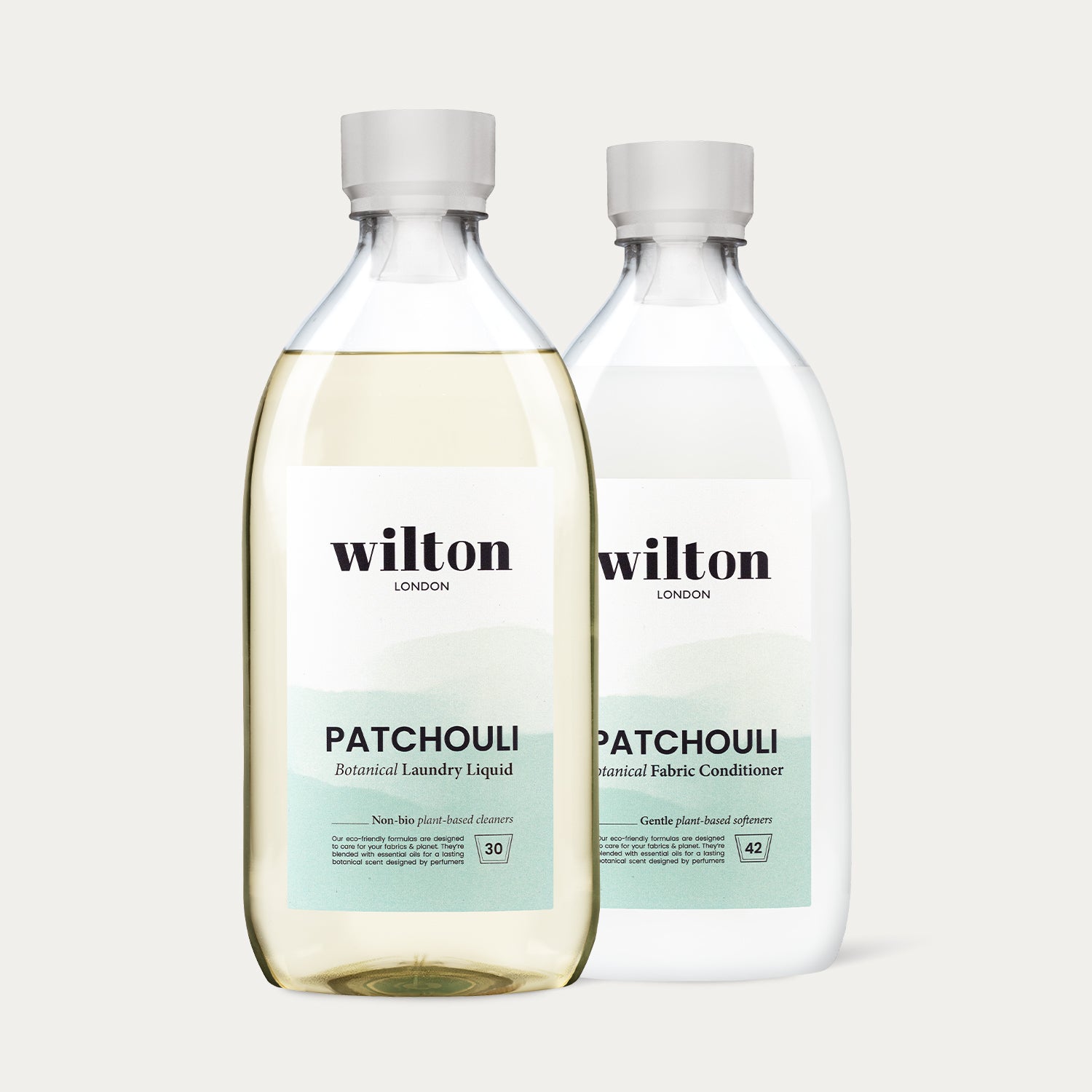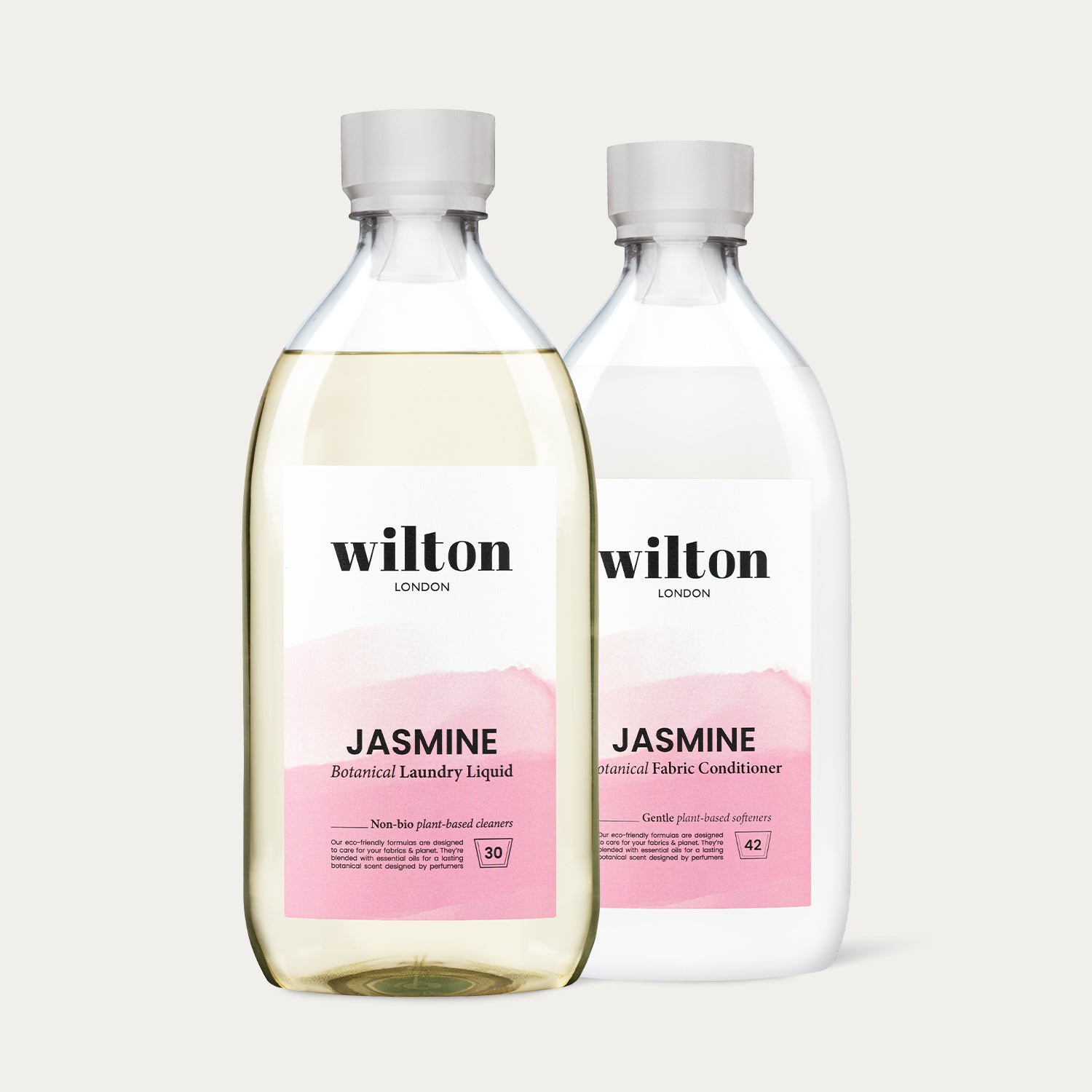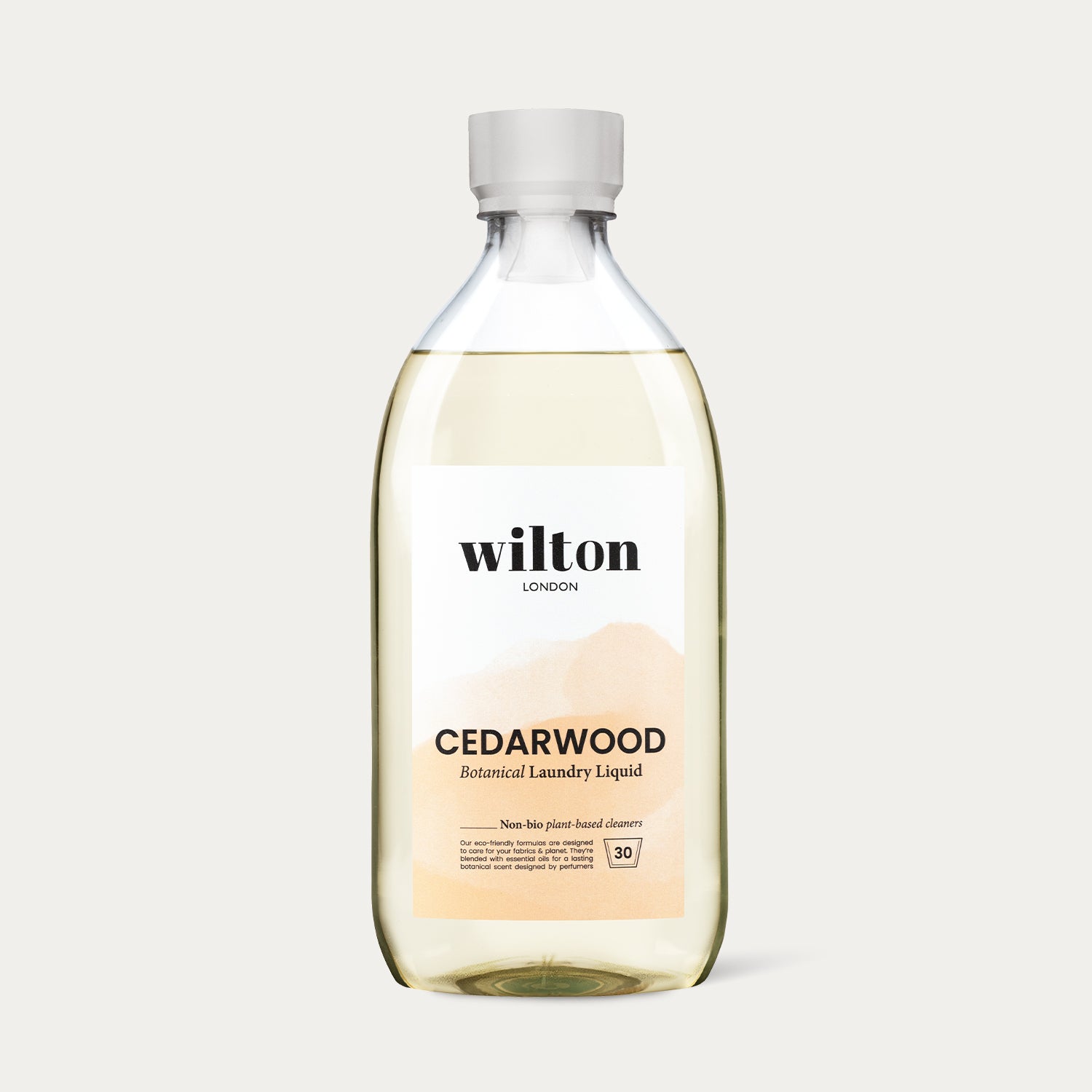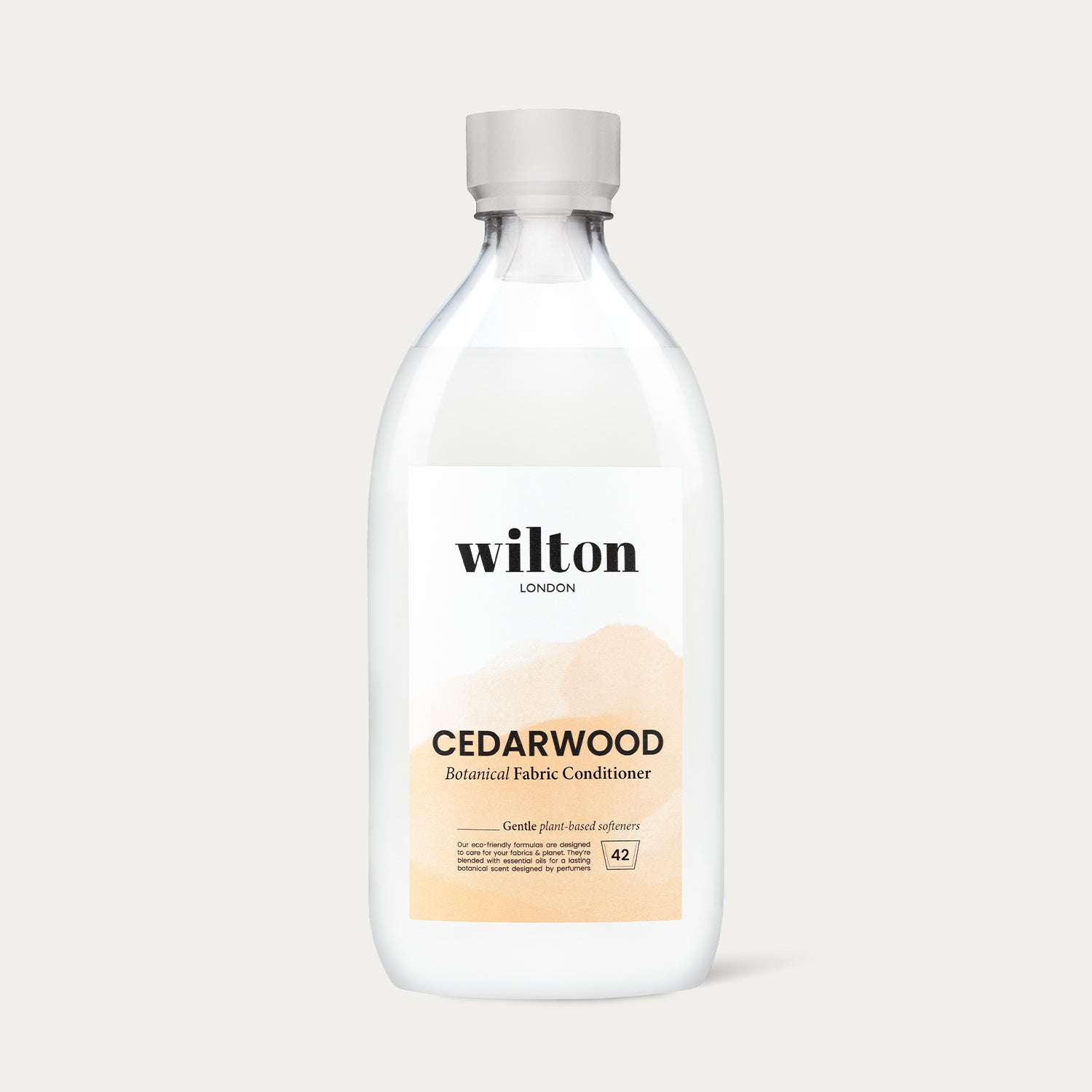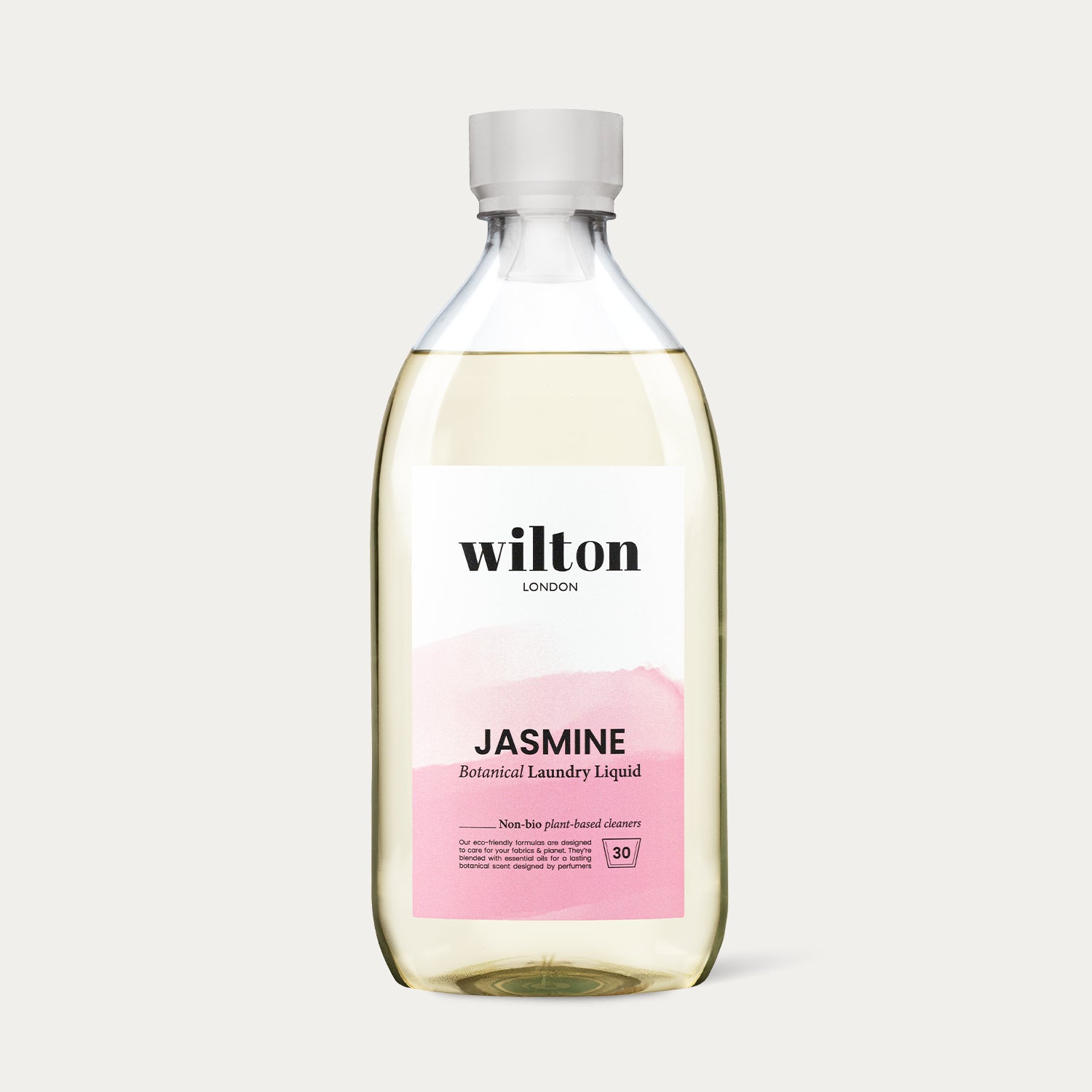
Why we use plastic bottles
Did you know, if we stopped using all plastic packaging in favour of glass, paper and aluminium we would use:
2.2x The energy
3.6x The material
2.7x Co2 emissions
Ref: Denkstatt Report
The decision to use plastic in our packaging wasn't taken lightly. As many of us know, plastic can have a huge impact on the environment and we want to reduce that impact. That's why our bottles use 50% less plastic than other leading laundry care brands - they're also recyclable.
But a lot of people ask us why we don't use glass, well, there are a few reasons.
- Glass breaks, a lot, causing product and packaging to be wasted and sent to landfill (couriers and postal services are very strict with this).
- It's heavy so has a big carbon footprint.
- It is more expensive and has a larger carbon footprint to recycle.
- Glass production creates more than 6 times the global warming gasses than plastic.
- We can use much less material.
- It's much lighter with a smaller transport carbon footprint.
- It's stronger and is tough to break.
- It's less expensive and a lower carbon footprint to recycle.
According to the Jan 2013 issue of International Journal of Lifecycle Assessment, glass beverage bottles cause the most environmental damage, including global warming. Reusing a glass bottle three times lowers it carbon footprint roughly to that of a single-use plastic beverage bottle. If the plastic bottle gets recycled, however, then the glass bottle must be reused 20 times to make their carbon footprint comparable.

Types of plastic.
There is a lot of misinformation around plastic at the moment. We've spent A LOT of time talking to our suppliers to find the best solution and type of plastic. That's why we use PET. Quite simply, it's the most recyclable plastic out there. We're also rolling out the use of recycled plastics in our bottles.
Biodegradable plastic
We decided not to use a variety of other '’eco-friendly' plastics because we don't believe they are truly eco-friendly. Take 'biodegradable' plastic for example. The term ‘biodegradable’ is very misleading if you ask us. If this type of plastic goes to landfill, it will not biodegrade. Instead, it needs to be sent to a very specialised management plant to 'degrade' - which uses lots of energy. But there are very few places that do this, and councils cannot separate the 'biodegradable plastic' from regular plastic. So it all just goes to landfill.
And the worst part - when 'biodegradable plastic' is mixed with normal recyclable plastic, it contaminates the other plastics in there making them less recyclable!
So if anything, biodegradable plastics are hampering the effort to reduce waste plastic.
Bio-plastic or ‘Plant-plastic’
You may have also seen 'plant-derived' plastics. These sounds nice and green, but at the end of the day, they are just plastic - almost exactly the same chemical structure of other plastics and it makes no difference to the way it will degrade. But we think it is an inefficient way of using our natural resources to create plastic. Also, a lot of the farmland used to produce the raw material can often cause deforestation.
Pouch plastic
Plastic pouches may use less plastic than some plastic bottles, but they use multiple types of plastic layered and fused together. This makes them really difficult to recycle, and they cannot be added to curb side recycling. They’re also very hard to clean and sanitise for re-use. For this reason, we don’t use them as we don’t want to create more non recyclable plastic.
Compostable plastic
There are two main types of compostable plastic, and they're very different! Just like 'biodegradable plastic', regular compostable plastic has to be sent to an industrial composting facility. It takes too long to degrade in council collected food waste, and it contaminate recyclable plastic, so it just ends up being sent to land fill.
Although, there is another type called home compostable plastic. In this case this plastic can be recycled at home in a compost heap. It should disappear in about a year. It shows a lot of promise - although its uses are very limited and currently not suitable for use with liquids. But we will keep our beady eyes on the technology as it develops.
So for now, we think the best material we can use is one that is light, strong, durable, reusable and easily recyclable. That's why we have chosen recycled PET plastic.
We want to help with the problem, not make it worse with 'fake green' solutions!
Recycle, Recycle, Recycle.
The key is that if more people recycle plastic keeping it away from landfills and our oceans - plastic will have a much smaller impact on the environment when compared to glass. So after you're done with our bottle, pop it in the recycling bin and feel chuffed with yourself.
Reuse.
Even better than recycling is reusing. So we're working on refill packs and refill stations to fill your bottles of Wilton with more lovely stuff.Re-Fill Update.
Our first refill station is now installed at eat17 Hackney and Almond & Co Westbourne. Take any bottle and you can fill it up with our lovely liquid.
Want to learn more?
This is a fantastic podcast. It discusses the reasons the world became so heavily dependent on plastic. Which may not be the reason you thought. It discusses responsible use of plastic and how it might actually be better for the environment than 'natural' alternatives. It's a must-listen!Listen here.
Use our guide to identify the plastic used in your waste. When you know the type of plastic, it's much easier to find out if your local council can recycle it.
